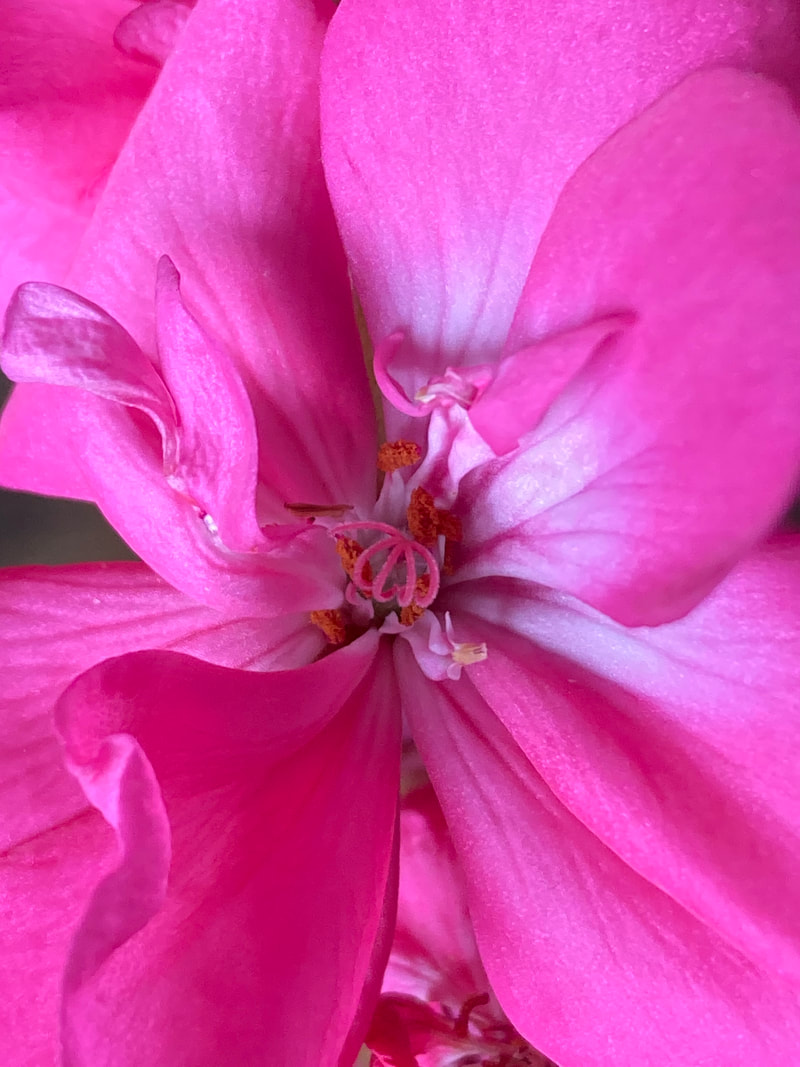|
How is it possible not to feel somewhat in love with spring? A friend says: allergies. Another says: the fickle weather. Another: too much rampaging sap, in humans too, leaving us cranky and exhausted. This year, as I feel the minutes slide through my fingers at a speed I never noticed before, what dampens my love of this season, a season that thrilled me even as a kid, is the understanding that it is a season of loss. We think of autumn that way, with its dying back of life and light, but spring is the season of change, and change—impermanence—is the essence of loss. Every blossom blown by the wind in or out of my yard is a tumble from a kind of biblical grace, a transformation of landscape, a movement along the path to inevitable autumn. I want to stand at the gate and shout, “Slow down! Don’t move! Give that back!” Give me a minute to breathe it all in before it turns into something else.
So the outrageous beauty gets lost under a veil of dissatisfaction, and I look up and wonder where the spring went, how it got away. I’ve learned a trick to capture life before it passes. The trick of writing came to me when I was still a very young kid. I kept a diary, kept it safe with a feeble lock and key, and in it I recorded the day’s events--disgusting fried eggs for breakfast; Miss Allison gives too much homework! Lots of exclamation points and revelations about foods I didn’t like. Then storytelling came to me. Better than the lock and key, it kept brothers out of my business. I disguised everything, absorbed myself in three-line fictions. If a day had gone badly—and they began to when I was twelve—I simply rewrote the events as they should have occurred and felt cleansed of all the messy parts of my personality. I took what had passed and transformed it. Years later, when I no longer needed to do that, I understood the difference between storytelling in order to hide, and fiction as a vehicle for truth. Truth, and by close observation, a means to slow down and savor this life around us and in us, the torture and rapture both. When I write I am never dissatisfied. I am occupied and almost emotionless. The emotion arrives when I am done, like being released from the pull of a powerful eddy. There are times when there is no room for anything but what is right here, and those times are precious, rare. They lend energy and a quality of deep interestingness to everything we are and do. There is no gain or loss, no time or season passing. Complete absorption releases the mind and body. It allows us not to think things through but instead to follow the lead of something that has already arrived at our destination. What we create in those times has a quality of smoothness and ease. A quality of unthought shines through. See if that doesn’t strike you here in a passage from Toni Morrison’s Beloved. I’ve been working at this book for close to a month. I finished it just minutes ago and the passage I wanted to record for its smoothness, truthfulness and ease lands about ten pages from the end. It’s speaking about Paul D’s attempted escapes from slavery to freedom: “And in all those escapes he could not help being astonished by the beauty of this land that was not his. He hid in its breast, fingered its earth for food, clung to its banks to lap water and tried not to love it. On nights when the sky was personal, weak with the weight of its own stars, he made himself not love it. Its graveyards and low-lying rivers. Or just a house—solitary under a chinaberry tree; maybe a mule tethered and the light hitting its hide just so. Anything could stir him and he tried hard not to love it.” Wonderful, isn’t it? A personal sky, weak with the weight of its own stars? I can feel that. And even if you’ve never seen a certain light hitting a certain mule, you can picture it. There it is, right in front of you, smooth and easy. And that chinaberry tree? I have chinaberries in my own yard. They blossom early, the palest pink. They send out the first invitation to sink into the temporary glory or shield myself with dissatisfaction. This season, which will it be? How hard will I try not to love it?
2 Comments
Carol
4/27/2021 11:10:20 am
I love your observation that seasons don't turn, they bend. So true. Thank you for this beautiful essay on savoring what is right at hand.
Reply
Michelle
4/27/2021 12:41:33 pm
Looking out the operating room window, safe and warm , protected from our late Spring snow, I can’t help feeling I’m missing out on the magic, the giddy little-kid excitement always just below the surface. I’m grateful for a fickle spring and even more so for your observations of it
Reply
Leave a Reply. |
AboutA place to discuss writing or anything on your mind. All visitors are invited to join the conversation by commenting on posts, asking questions, and joining the newsletter below for even more opportunities to connect and converse! Archives
April 2023
Categories |


 RSS Feed
RSS Feed